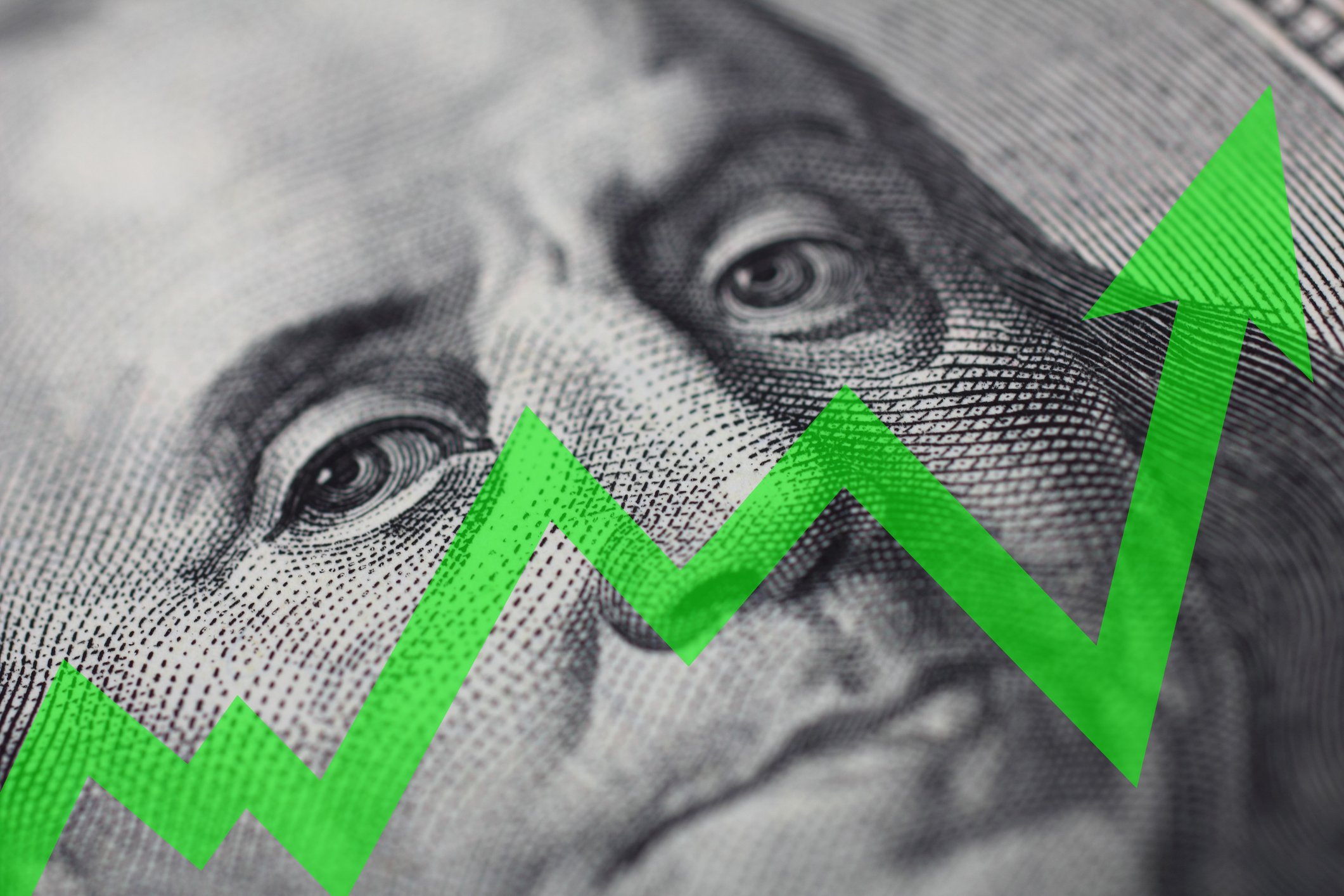To be clear, there are no real winners during the COVID-19 pandemic. The outbreak and subsequent shutdowns of large economies is likely to cause a recession of indeterminate length, which harms the economy as a whole. However, there are some industries with favorable long-term prospects, whose businesses may see accelerating adoption during this time, and will likely emerge in a much more favorable position relative to other companies when this is over.
If such stocks are down significantly, these are the stocks investors should think of buying today. Certainly, one of those sectors is e-commerce. Obviously, e-commerce had already been a growing trend, making up about 10%-15% of all retail sales, and gaining market share on traditional retail every year. As a result of the outbreak, that growth path could actually accelerate over 2020 and 2021, entrenching e-commerce further in people's buying habits.
That should benefit the following three companies, all of which deserve to be on your buy list today.

Image source: Getty Images.
Amazon
The biggest and baddest e-commerce company today is Amazon.com (AMZN 1.57%), which has seen a huge surge of demand amid the coronavirus outbreak and associated shelter-in-place orders. In fact, the company announced in mid-April it was hiring another 100,000 full- and part-time workers who had been laid off from other professions amid the outbreak. Researchers are also seeing spikes in internet traffic for Twitch, Amazon's e-sports streaming and video chat platform that it bought in 2014. By the way, Amazon is about to release the first of what looks to be many new original video games next month, a sci-fi first-person shooter game called Crucible. That's in addition to the company's upcoming video game streaming platform, which is currently code-named Project Tempo.
Finally there's Amazon Web Services, the world's leading cloud infrastructure-as-a-service platform. This business hit $35 billion in revenue last year, growing 36.5%, and with operating margins of 26.3%. AWS was on a great trajectory before the outbreak, and the crisis may spur businesses large and small to accelerate their adoption of cloud computing. That's because the cloud allows for a more distributed workforce and flexible capacity. If that happens, Amazon stands to benefit even more.
MercadoLibre
While Amazon's stock has fared fairly well in the recent downturn and is actually slightly up on the year, Latin American e-commerce giant MercadoLibre (MELI 3.55%) has seen its stock plunge nearly 40% from recent highs.
At first, the drop may be confusing. MercadoLibre is the dominant e-commerce platform in Latin America, where e-commerce and electronic payments are still underpenetrated relative to the developed world. The COVID-19 outbreak should only serve to accelerate those trends. In addition, MercadoLibre has been posting red-hot growth numbers.
In the fourth quarter, unique buyers grew 27%, items sold grew 28%, confirmed registered users grew 20%, gross merchandise volume grew 40% in local currencies, and listings on its marketplace jumped 51%. But just as Amazon's secondary AWS business may be the most exciting part of its empire, for MercadoLibre that exciting secondary business is MercadoPago, its electronic payments platform. Last quarter, Pago grew total payment volume (TPV) by 99% and total transactions by 127%. Originally developed as an escrow-like service to help users make purchases on its platform, Pago has seen usage explode outside of MercadoLibre's marketplace, with off-marketplace TPV growing a stunning 176% in local currencies last quarter.
The recent outbreak has seen MercadoLibre's Mexican e-commerce business accelerate as well. Management recently told Mexican paper Milenio that MercadoLibre had seen pharmacy sales jump 114% and home and laundry sales spike 403% in the country.
Some might ask why MercadoLibre is down so much given surging e-commerce demand amid the outbreak. It's a valid question. Obviously, the outbreak has caused a lot of fear of a deep global recession. Usually when that happens, emerging markets such as Latin America are viewed as riskier and thus sell off. In addition, lower overall spending might hurt MercadoPago's offline payments business, which has been fueling much of Pago's recent growth. Finally, unlike Amazon, MercadoLibre still isn't profitable, as it has been investing heavily in free shipping and other technology and marketing efforts to capitalize on its long-term growth opportunity.
While these are all valid concerns, the 40% haircut investors have recently endured seems to have made a fine entry point for what should be a long-term e-commerce winner.
JD.com
Finally, China's JD.com (JD 2.77%) has been the best-performing e-commerce stock in 2020. In fact, even though the coronavirus originated in China, JD's stock is up 13.2% on the year, though it's still down about 20% from its all-time highs set back in early 2018.
JD Year to Date Price Returns (Daily) data by YCharts
A few things are going right for JD. First, Chinese stocks had already been hit during the 2018 and 2019 U.S.-China trade war and had already been down more significantly than their U.S. counterparts. However, JD reported a strong fourth quarter that showed accelerating customer and growth trends across its e-commerce platform. Profit margins also expanded as JD's higher-margin logistics arm continued to attract third parties to use its best-in-class logistics capabilities.
JD is particularly compelling because it has invested heavily over the years to develop its own wholly owned end-to-end logistics platform, with its own distribution centers and warehouses all over China. That has been a tremendously expensive endeavor and is why JD earns much lower margins than rival Alibaba (BABA +0.42%), which is more of a pure asset-light platform.
However, JD's strategy could have an advantage now, as Chinese consumers flock to its speedy and reliable delivery system run by JD's own employees, with verified, high-quality goods less prone to counterfeits than other platforms. That's why even with much of the Chinese economy shut down from late January to early March, JD is still projecting double-digit growth this quarter.
Some may be wary about investing in Chinese stocks after the recent Luckin Coffee (LK +4.06%) accounting fraud debacle. This is always a valid concern and should go into your risk assessment. Nevertheless, JD has been in business for a long time and counts both Walmart and Alphabet as investors alongside you, so I happen to think the risk of fraud is much less relative to newly public Chinese companies.
E-commerce should accelerate market share
In trying times like these, it's usually a good strategy to go with dominant, leading companies in their respective industries and markets. That's why Amazon and MercadoLibre make great picks. And while JD is still in a competitive battle with rivals Alibaba and Pinduoduo (PDD 5.40%), China's e-commerce market is so large that it should have room for more than one successful platform, while the current crisis should appeal to JD's particular strengths.
That's why these thee companies should be near the top of any investor's buy list, since many other industries are almost uninvestable today.











